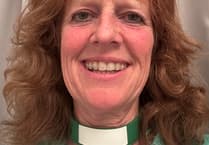It was said of early Christians: “Behold how they love one another.”
These early Christians were trying to support each other in all the different aspects of life—spiritual and emotional, and also financial, in terms of sharing what each had and trying to ensure all felt cherished.
In 1667, a devout Quaker, Isaac Pennington, also expressed this: “Our life is love and peace, and tenderness: bearing one with another and forgiving one another, and not laying accusations one against another: but praying one for another and helping one another up with a tender hand.”
They were not the only voices speaking of the Christian life, and many of those other voices were not living the Christian life. These were people with their own agenda for Christianity, seeking power—whether through hierarchical church structures or by adopting a way of life excluding all but those considered the “chosen.”
In the news these days, whatever the religion, it seems we are given these extremes as the norm.
However, in all religions there are also those, like Pennington, who seek to follow the more divine path, which is seeing the good in everyone.
When there is a multi-faith meeting, those of different faiths who are sincerely trying to follow their faith often have no difficulty relating to each other. To use a Quaker phrase, they see “that of God in everyone.”





Comments
This article has no comments yet. Be the first to leave a comment.